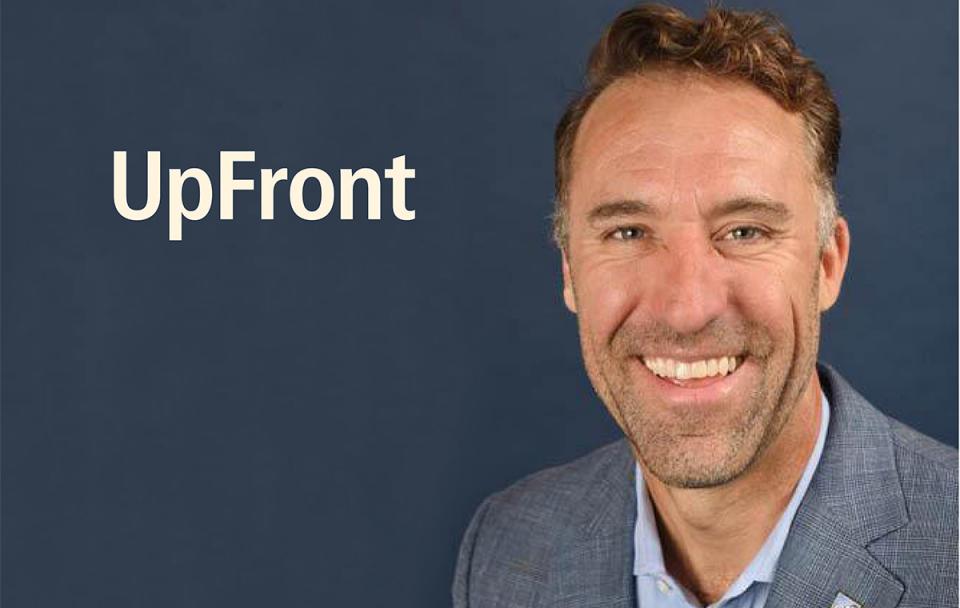By Jeffery M. Freitas, CFT President
When I was elected CFT President in March, I said in my speech to Convention delegates: “I believe that when we fight for education, we also fight for social justice, racial justice, gender equality, LGBTQ rights, and climate justice.”
To be a social justice union, we must not only consider the complex lives of our members and the challenges they face, but look beyond the doors of the schoolhouse to consider the ways our campus communities intersect with our larger communities. When we fight for labor, we must fight for our communities, too.
During my years as a CFT leader, I’ve been to every corner of the state to meet with members and listen to them. As unionists who are committed to improving the lives of educators and classified staff, our members have focused on bread-and-butter issues like the need for better pay, healthcare, a secure retirement, and a voice at work.
But I’ve also been proud of our members’ broader commitment to fight for what their students and their communities need to make the fight for our jobs and social justice one and the same. That’s as it should be.
As the new academic year gets underway, I have been traveling again to meet with members in my new role. At Aptos High School, I had the privilege of talking with educators from the Pajaro Valley Federation of Teachers. They were eager to get to their classrooms and start the year. I was eager to hear what issues were on their minds.
I heard about the local’s ongoing commitment to fight the use of toxic pesticides in agricultural fields surrounding their schools and communities, mostly communities of color. The schools, the land that surrounds them, and the farmworkers who grow the food our members, their families, and their students eat, are all part of the same community. I was inspired by how the local frames its mission as integral to that larger community.
Their work highlights how the fight for education and labor is inseparable from the fight for social justice. Similarly, in recent weeks the CFT held racial justice workshops for staff and the Executive Council. We did this because, if as a union, we are committed to integrating racial justice into our priorities, we must deliberately set aside time to learn how. We must have an expansive view of what our advocacy should look like if we are to reach our full potential as a social justice union.
In our workshops, we learned about the perils of unconscious bias. To succeed, we must do just the opposite — act with intention and focus. When fighting for wages, benefits, and working conditions, we must constantly look through the broader lens of social justice.
During our 100th anniversary year as a labor union, I am reminded that the CFT and our national affiliate, the AFT, have a long history of advocating for issues that reach far beyond the classroom.
The AFT was one of the first unions to extend full membership to African Americans. As early as 1918, the AFT called for equal pay for African American teachers. In 1954, the AFT was the only education union that filed a brief with the U.S. Supreme Court in support of the Brown v. Board of Education case that affirmed education as a fundamental right and called for an end to “separate but equal” learning conditions in public schools.
In 2019, we find ourselves at a moment that brings incredible challenges to our vision for a socially just and equitable society — and AFT is still leading the charge for what is right. This summer President Randi Weingarten and Executive Vice President Evelyn DeJesus traveled to McAllen, Texas, joining AFT educators and nurses from Connecticut, New Jersey, New York and Texas, to bear witness to the atrocities at the border where our country is housing migrants seeking refuge and asylum in detention centers. As we have throughout history, we must give voice to the voiceless, speak up when we see injustice, and speak out for what is right.
We can be proud of our work at home in California, too. CFT made history in 2016 when we became the first statewide labor organization in the United States to adopt a Climate Justice Agenda. In 2017, our Convention passed a historic resolution adopting the findings of our Racial Justice Task Force, which focused on ending the school-to-prison pipeline. In 2018, CFT assisted Equality California in producing its Safe and Supportive Schools Report Card, which measures the progress K-12 districts are making in regard to learning environments for LGBTQ students.
At CFT, we know it’s not enough to espouse the values of social justice unionism — we must put them into action. To advance this work, our union’s strategic plan has three primary goals: to increase funding for public education, to fight against privatization and corporatization of our public education system, and to work towards equity in higher education.
As we undertake our work to make public education more just and equitable, we will continue our efforts to connect bread-and-butter issues with the broader communities in which we live and work — much as the Pajaro Valley Federation and other local unions are doing. This is not an either/or proposition. The CFT is ready to rise to the challenge of being a true social justice union.

